Webinar #20
Making Evidence Work: How Research Drives Real Literacy Gains
A Joint Webinar Presented by Capit Learning and Evidence for ESSA (Johns Hopkins University)
Dr. Steven Ross, Director, Center for Research and Reform in Education, Johns Hopkins University
Thursday,
January 15, 2026
All Webinars are Complimentary. If you cannot attend the live webinar but wish to view the recording, please register, and we will send it to you.
Who Should Attend
District and school administrators, reading and ELA specialists, instructional coaches, curriculum directors, teachers, and literacy leaders who are committed to improving student outcomes.
Scan this QR Code to register for the Evidence for ESSA Newsletter.
1:00 PM PST
4:00 PM EST
Join Capit Learning and Evidence for ESSA (Johns Hopkins University) for a practical, research-informed discussion on how to identify, interpret, and apply educational evidence to improve reading outcomes for all students.
Why Attend
The Science of Reading movement has brought evidence-based practice to the forefront—but what does “evidence” actually mean, and how can educators utilize it to make more informed decisions about reading programs, interventions, and supports?
In this session, you’ll learn:
What ESSA Evidence Tiers really mean—and how schools can use them to guide funding and program decisions
How to use Evidence for ESSA as a go-to resource for finding research-proven literacy programs
What current research reveals about effective ELA tutoring and intervention models
What teachers themselves say they need most from literacy tools and supports—based on real classroom feedback and studies
How data and evidence can strengthen—not complicate—your literacy strategy
Panelists
Dr. Steven M. Ross, Director, Center for Research and Reform in Education, Johns Hopkins University
Dr. Amanda Neitzel, Deputy Director of Evidence Research, Johns Hopkins University / Evidence for ESSA
Dr. Joseph Reilly, Assistant Research Scientist, Center for Research and Reform in Education, Johns Hopkins University
Moderator: Eyal Rav-Noy, Co-Founder & Head of Product, Capit Learning
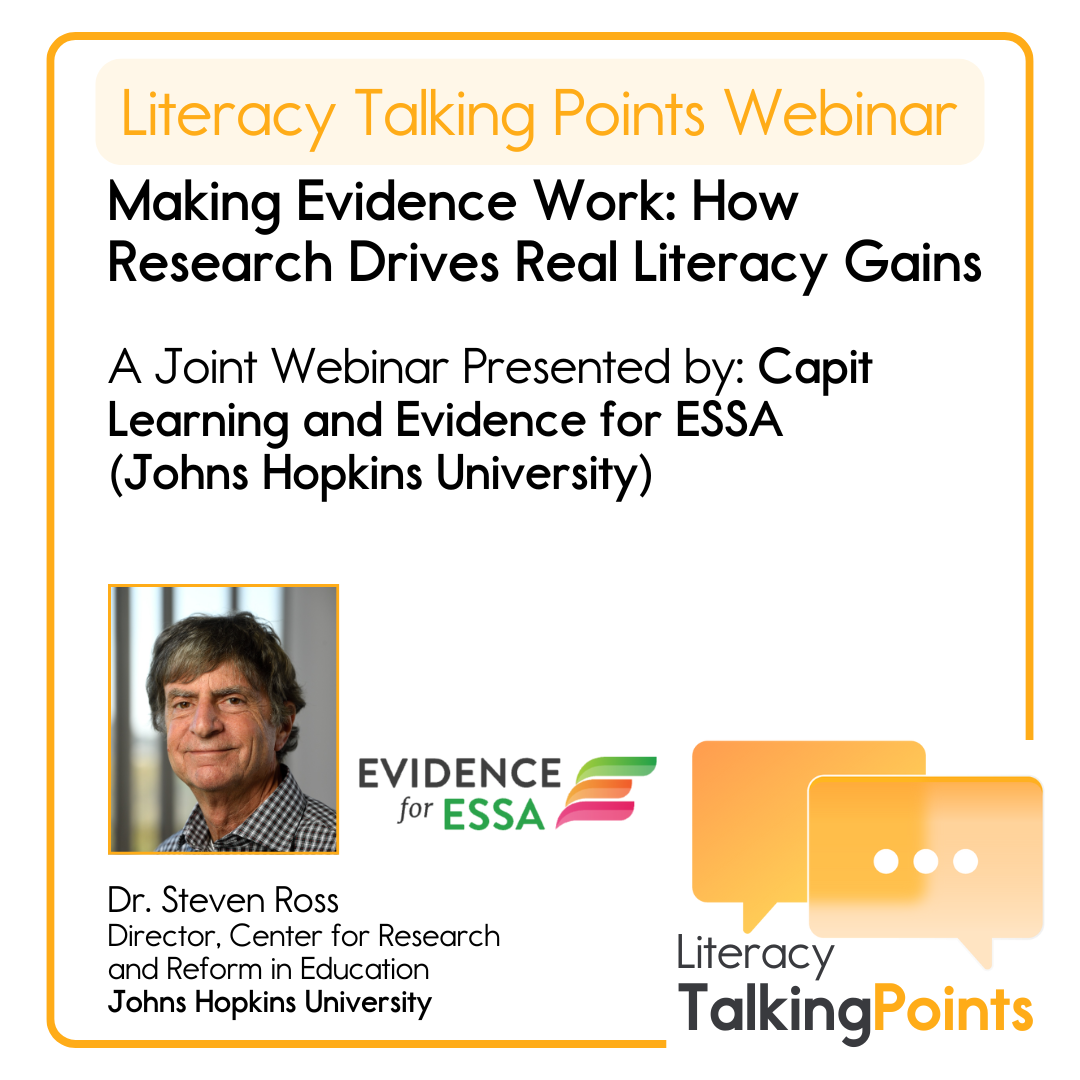
Webinar 20: Making Evidence Work: How Research Drives Real Literacy Gains
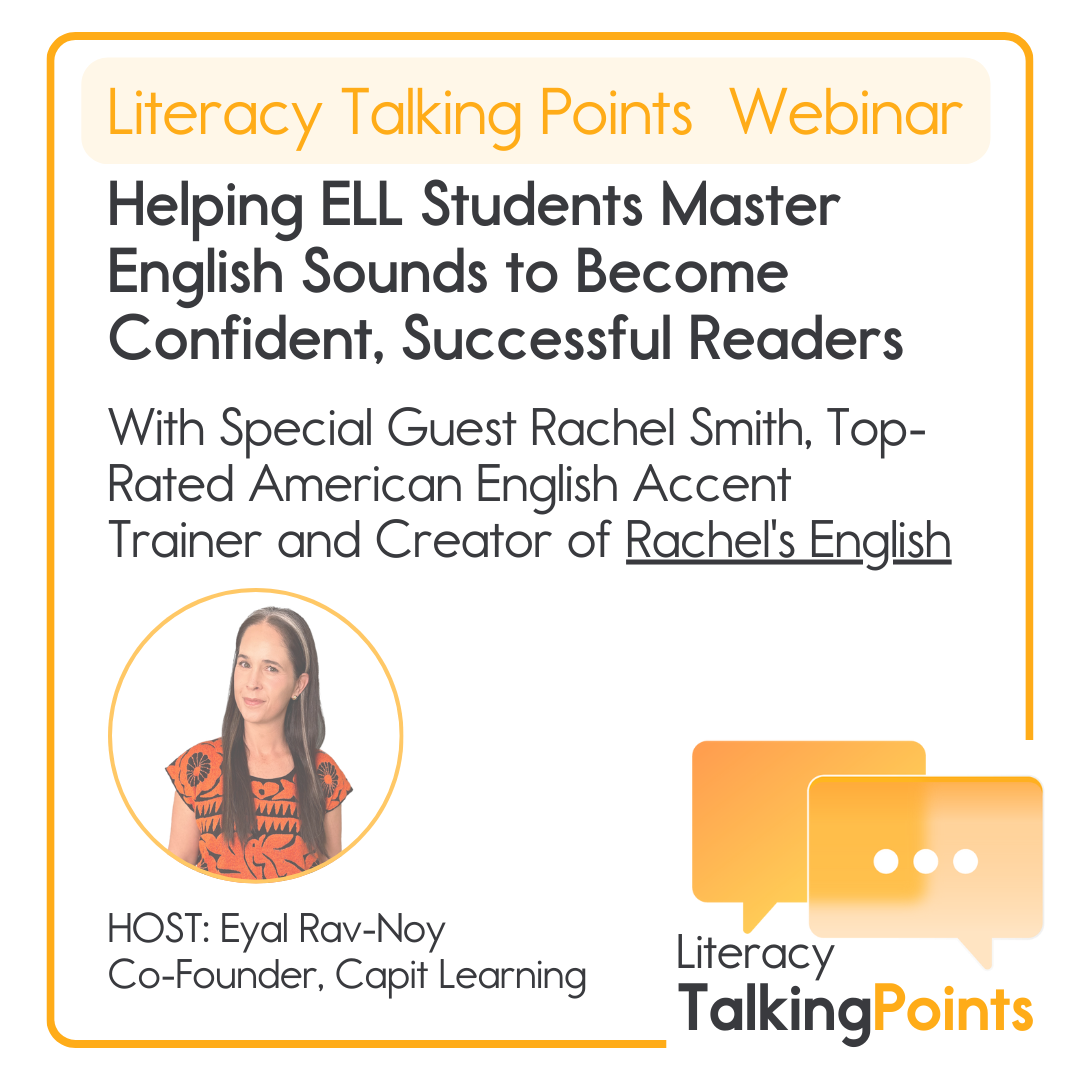
Webinar 19: Helping ELL Students Master English Sounds to Become Confident, Successful Readers

Webinar 18: Fun With Phonemes, Part 2

Webinar 17: Why Can't They Spell?
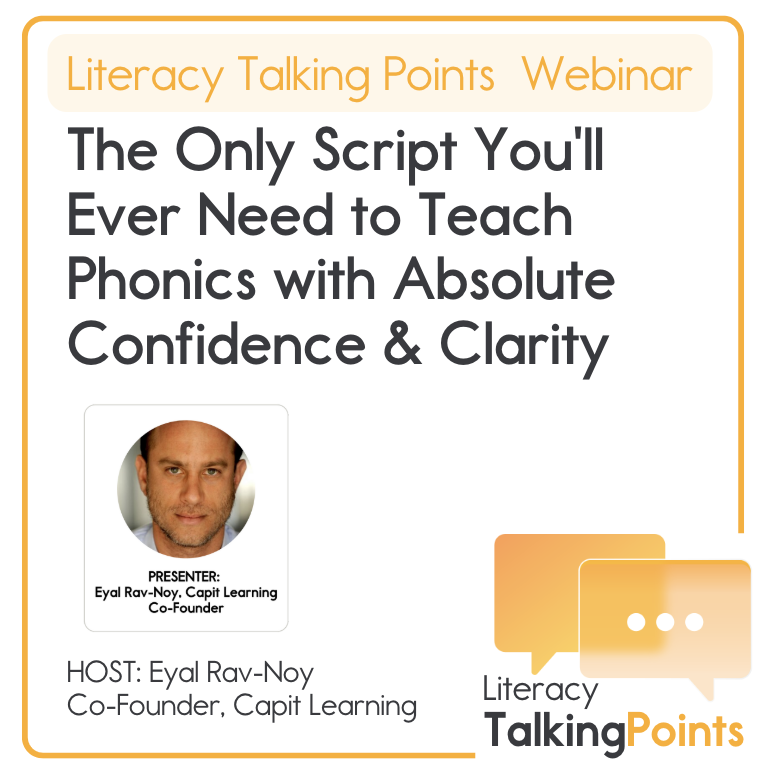
Webinar 16: The Only Script You'll Ever Need to Teach Phonics

Webinar 15: Misconceptions about the Science of Reading
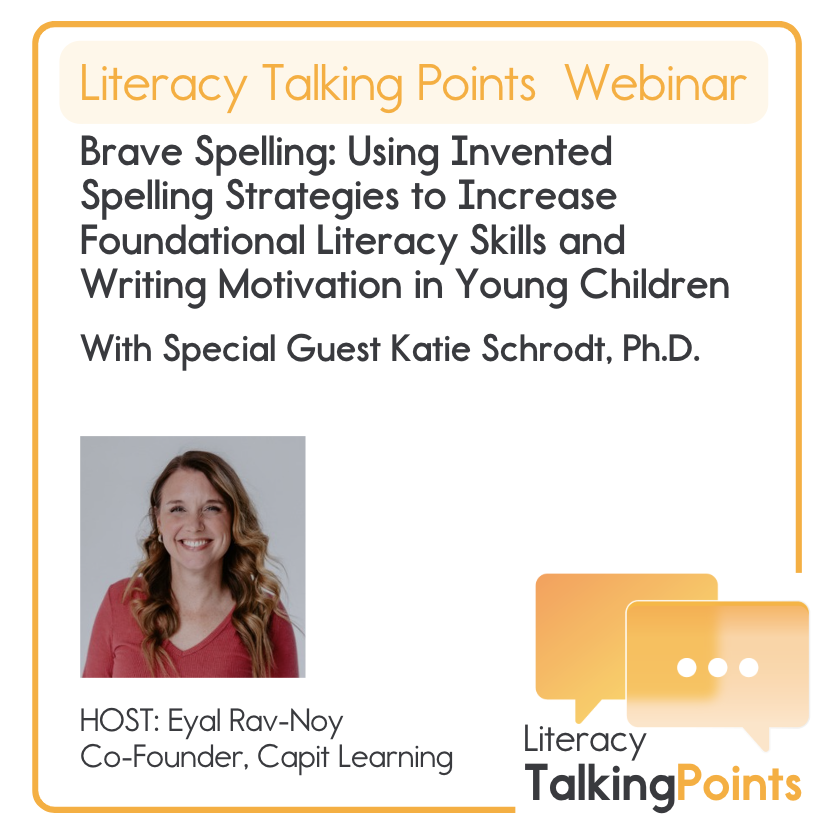
Webinar 14: Invented Spelling - Good or Bad?

Webinar 13: Strategies for Supporting Students with Dyslexia in Solving Math Word Problems
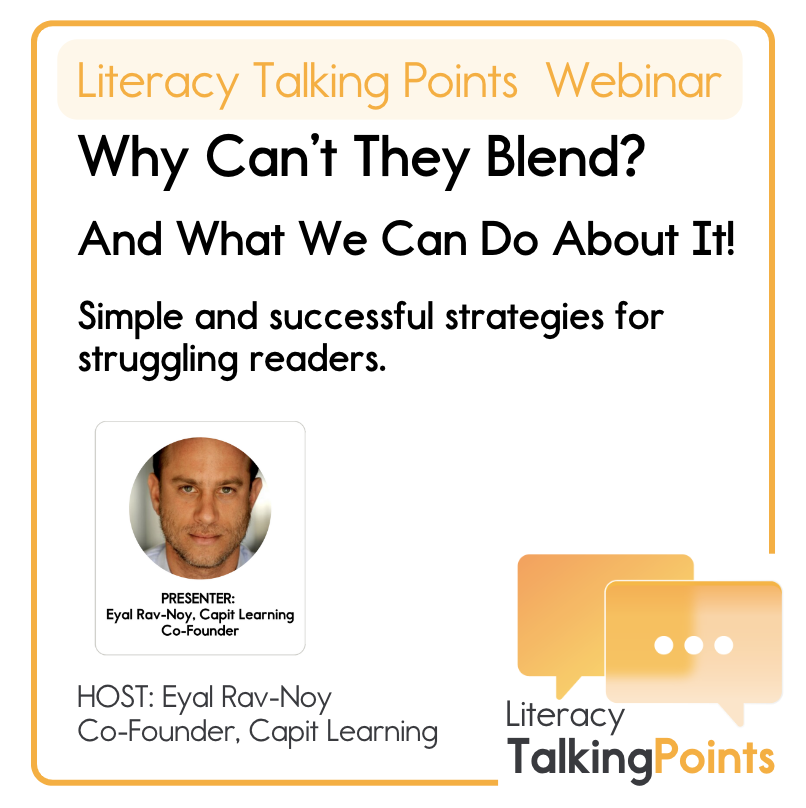
Webinar 12: Why Can't They Blend?
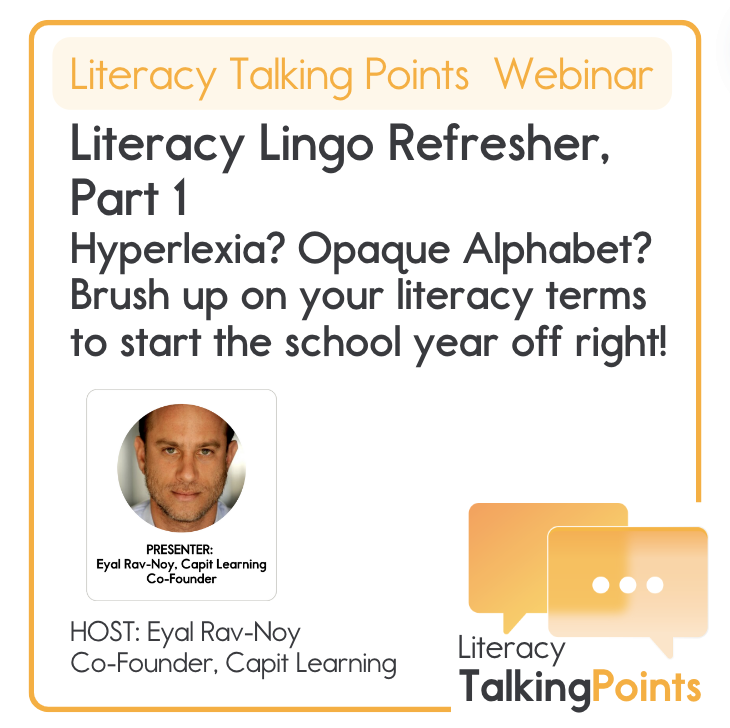
Webinar 11: Literacy Lingo Refresher (Part 1)
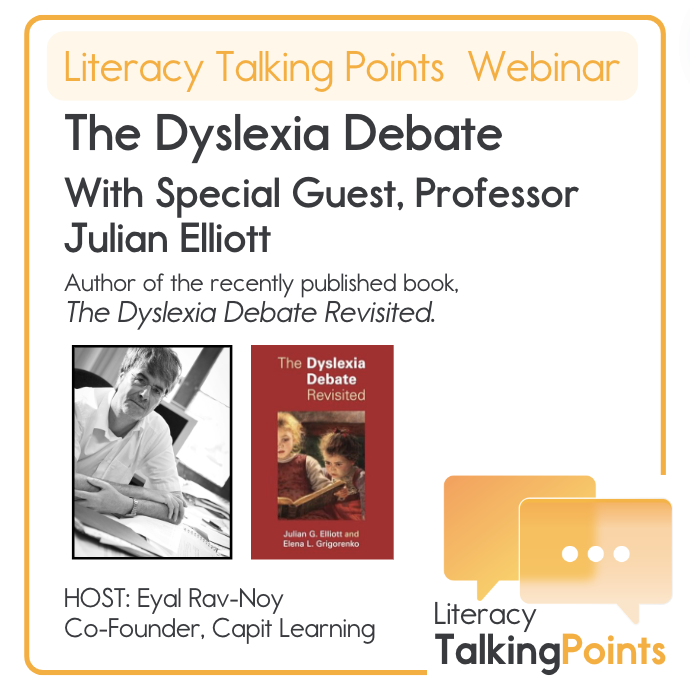
Webinar 10: The Dyslexia Debate

Webinar 9: The Single Biggest Mistake When Teaching Children Letters & Sounds

Webinar 8: Should We Teach Letter Names or Letter Sounds?

Webinar 7: The Magic of Visual Mnemonics
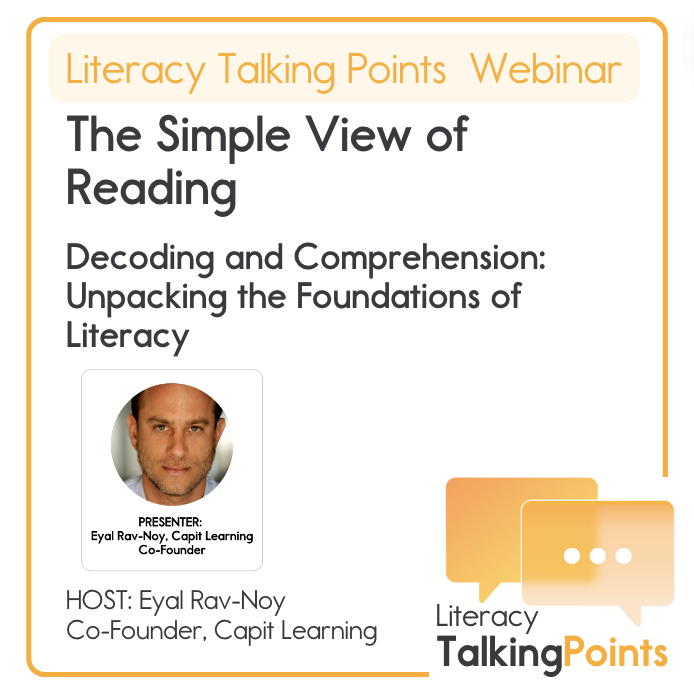
Webinar 6: The Simple View of Reading

Webinar 5: Fun with Phonemes

Webinar 4: The Narrow View of Reading

Webinar 3: Phonemic Awareness - Part 2
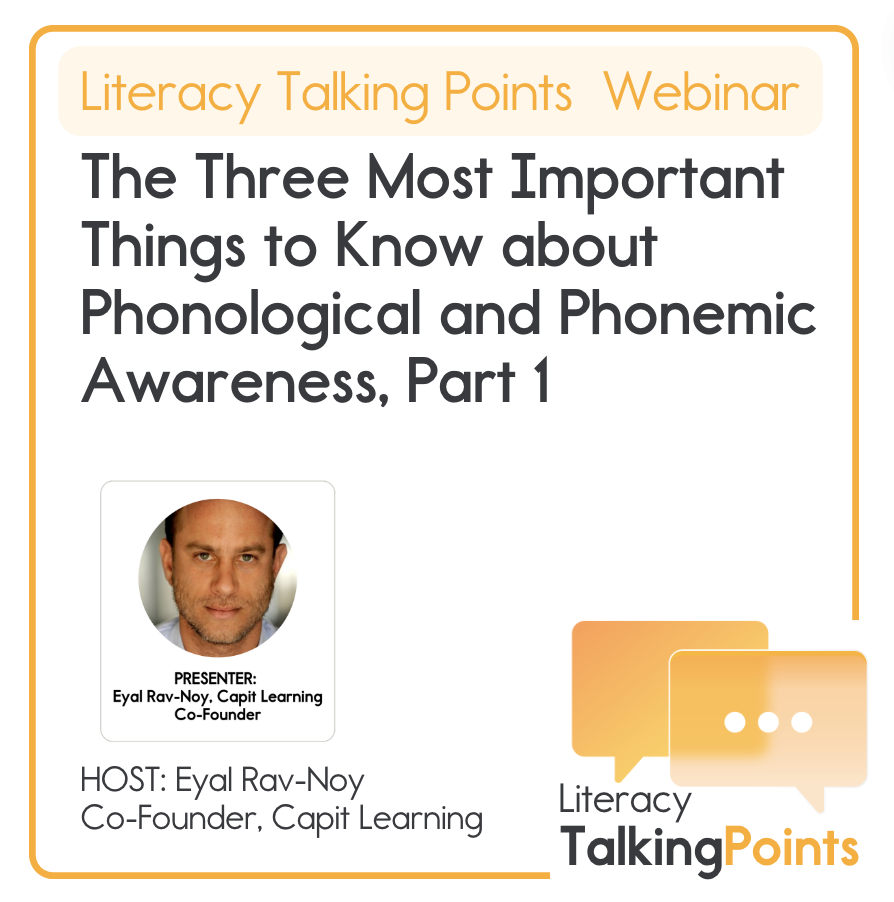
Webinar 2: Phonological Awareness







